Join or Sign In
Sign in to customize your TV listings
By joining TV Guide, you agree to our Terms of Use and acknowledge the data practices in our Privacy Policy.
8 Shows Like Shōgun to Watch Next
Let these epic historical dramas rule your watchlist
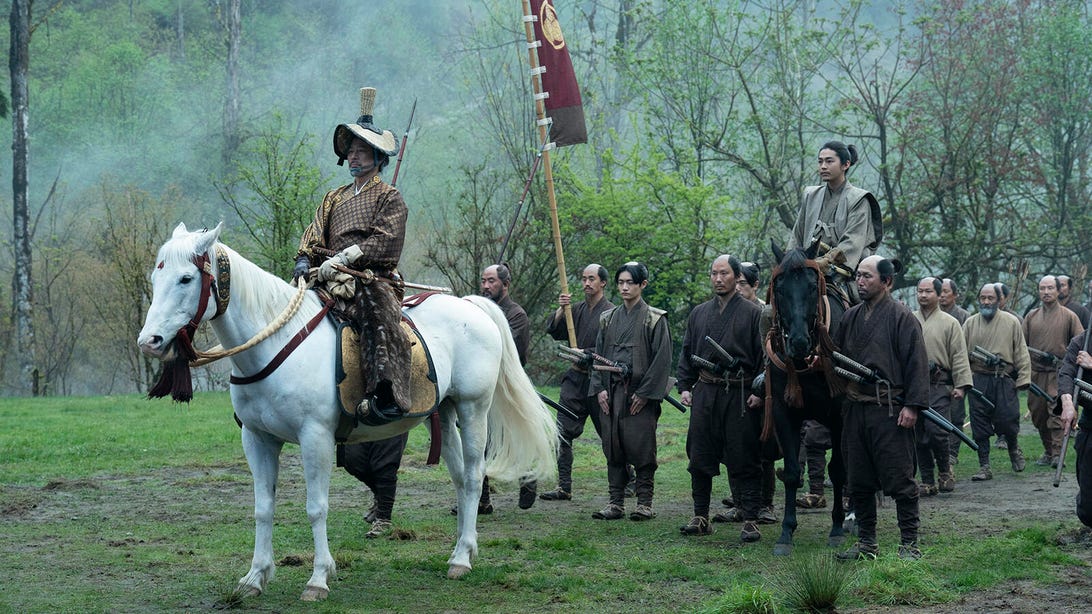
Hiroyuki Sanada and Yuki Kura, Shōgun
Katie Yu/FXThere has never been a show like Shōgun, at least for the Western world. It's more than just the next Game of Thrones and much more than a mere adaptation of the classic novel by James Clavell. It's the rare drama that combines immersive storytelling, immaculate attention to detail, and flawless performances to transport audiences to another world. It's also the most accurate depiction of feudal Japan we've seen on the small screen, maybe ever.
Shōgun is completely singular… but it's also a limited series. That means that, unless FX and Hulu decide to pull a Big Little Lies and continue the story anyway, its stellar first season will also be its last. And then what? Where will we get our weekly fix of political intrigue and brutal, katana-swinging action? Shōgun set a new standard for historical epics, but it's not the only series of its ilk. If you're on the hunt for another ultraviolent, visually stunning period piece — other than Thrones itself, since that one's kind of a no-brainer — we've got you covered.
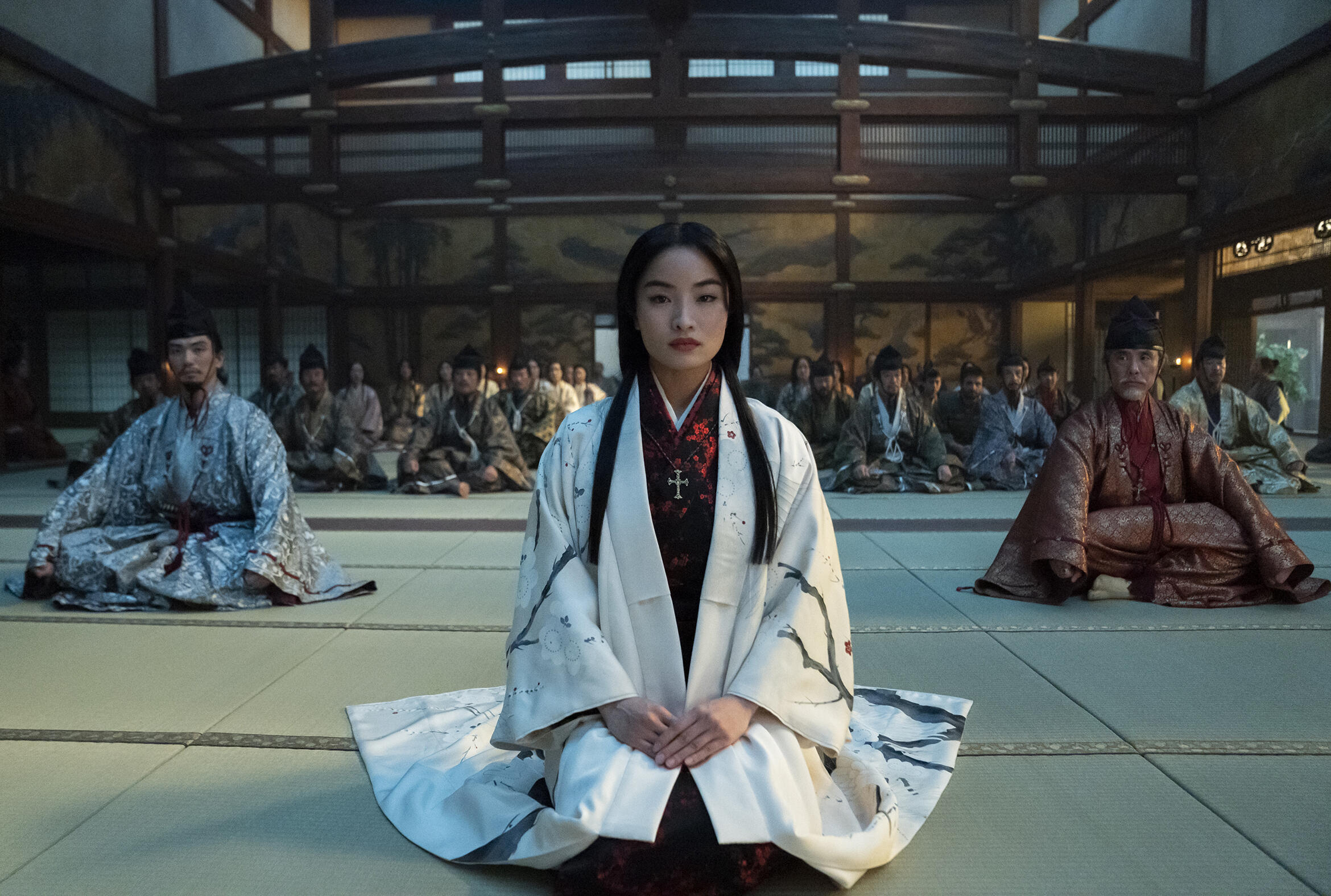
More recommendations:
- The best shows to watch based on shows you already love
- The best shows to watch on Hulu
- Hiroyuki Sanada says before Shōgun it was 'so hard to correct every detail' of Japanese culture on set
Marco Polo
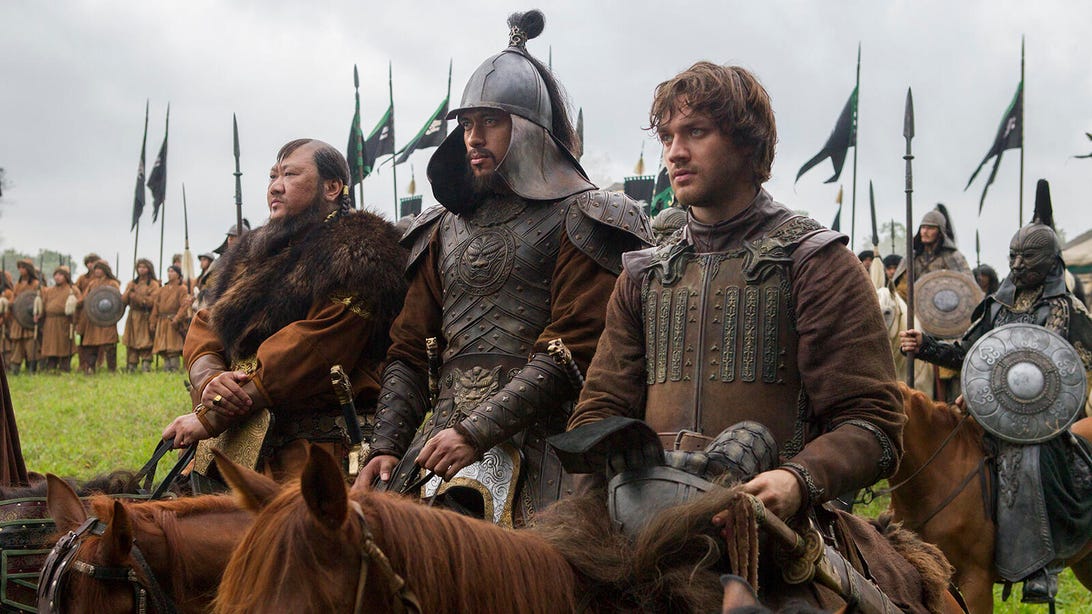
Benedict Wong, Uli Latukefu, and Lorenzo Richelmy, Marco Polo
Phil Bray/NetflixNetflix's underseen answer to Game of Thrones follows many of the same beats as Shōgun: A white European explorer stumbles into a foreign court and, against all odds, finds himself enmeshed in its dangerous political web. The explorer in question is Marco Polo — who was, in fact, a real person long before inspiring a pool party game. In the 13th century, Polo (played here by Lorenzo Richelmy) became an attaché to Kublai Khan (played by Benedict Wong), the ruthless ruler of Mongolia and grandson of Genghis Khan. Like so many royal kingdoms across the ages, the Mongol Empire of Marco Polo is a fractured pit of vipers. The Khan's curiosity for the outside world, and its disparate cultures, has turned the region into a melting pot. That's great for trade, but the same can't be said for his court, which is fighting off civil war from all sides.
As mentioned, Marco Polo apes a lot of the machinations, paranoia, and in-your-face sexuality of Thrones. Kublai's court is a fitting scene for that Peak TV drama, even if it does feel more like an exercise in exoticism at times. For 2014, though, Marco Polo was downright groundbreaking, especially as a showcase for such a talented Asian cast. Benedict Wong is fantastic as Kublai Khan, and Joan Chen stuns as his favorite wife. A cliché-addled story does keep the series from truly being great — but in a way, it kinda walked so that Shōgun could run.
Vikings
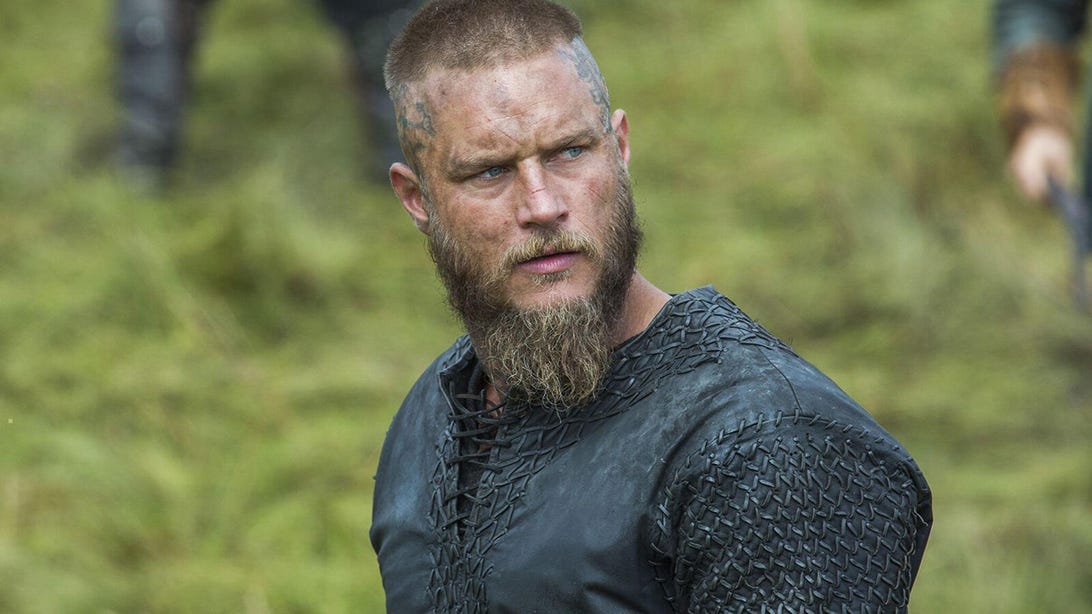
Travis Fimmel, Vikings
HistoryIt's hard to make a good historical drama about an outsider in a foreign land, popular as the trope may be. The specter of assimilation — and in a lot of cases, exoticism — is always somewhere in the mix, and it's the very thing that can turn a promising costume drama into a white savior narrative.
Shōgun manages the impossible in depicting a culture clash without any bias on either side, and in that sense, it shares some connective tissue with Vikings. The History Channel's epic Norse drama is mostly about the birth of a dynasty, but it's also a fantastic example of objective, unflinching storytelling. Its best seasons follow the head of this empire, Ragnar Lothbrok (Travis Fimmel), and they're only enriched by his complex relationship with Vikings' resident outsider. That's Athelstan (George Blagden), a Christian monk who initially serves as Ragnar's slave but eventually becomes his closest friend. Through their evolving bromance, Vikings dives into juicy debates on morality and theology, and later explores the larger conflict between the "pagan" Norse and the very Christian Anglo-Saxons. It's just one strong aspect of an altogether awesome series: Sure, the Thrones-esque brutality is compelling, but it's the characters and their chemistry that made it all matter.
Westworld
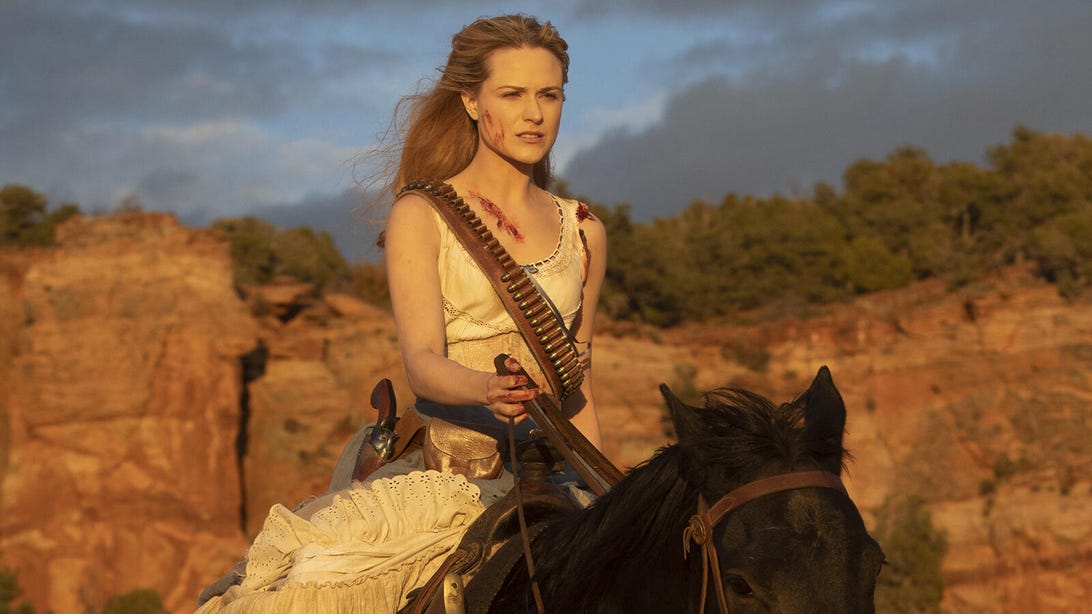
Evan Rachel Wood, Westworld
John P. Johnson/HBOBefore Bullet Train, John Wick, and Shōgun marked a career renaissance for Hiroyuki Sanada, the actor was working tirelessly to bring authentic depictions of feudal Japan to the West. He's served as an unofficial advisor for projects like The Last Samurai and consulted thoroughly on Westworld's second season. The HBO series doesn't have a whole lot in common with Shōgun — but as a showcase for Sanada's prowess as an actor, martial artist, and cultural steward, it's a great companion piece for the FX epic.
In the near-future society of Westworld, an enigmatic tech company has created an immersive theme park experience just for the debauched one percent. In Westworld, patrons can engage in stand-offs, frequent saloons and brothels, and indulge in their basest, most primal instincts. The park is populated by androids called Hosts, and things really start to pop off once they unlock sentience and decide they've had enough. Westworld expanded its esoteric universe in Season 2's "Akane No Mai," which introduced Shogun World. It's a mirror image of the series' eponymous park, a reimagination of Japan's Edo period — and it's here that Sanada appears (and steals the show) as a new Host.
For a while, "Akane No Mai" was the closest thing we had to a modern-day, Kurosawa-esque drama. It opened a new gateway to Japanese cinema, especially for a younger generation, and helped pave the way for Sanada's career-defining work in Shōgun.
Tokyo Vice
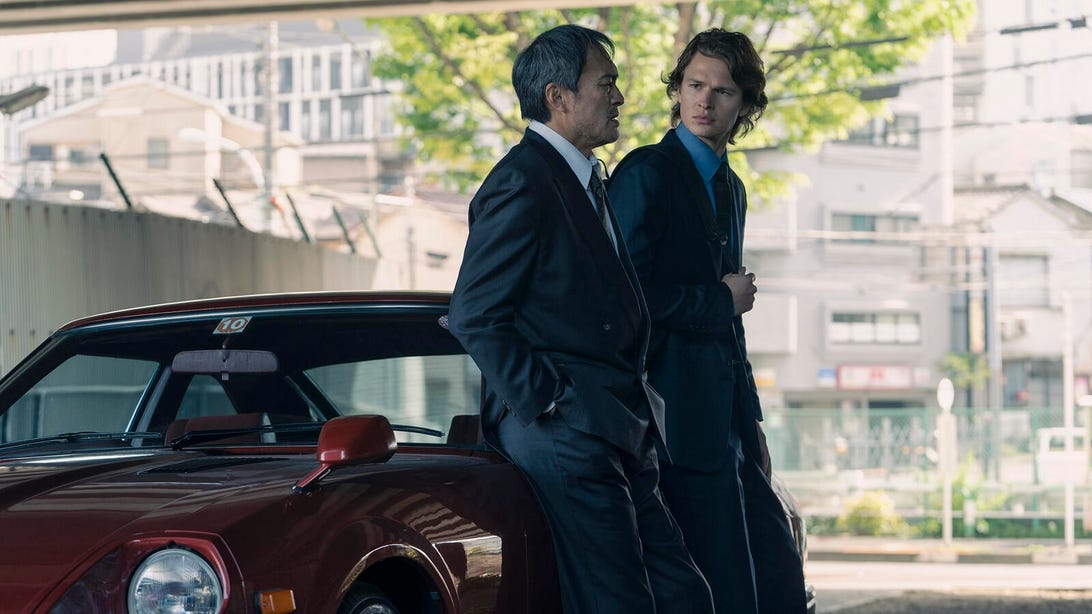
Ken Watanabe and Ansel Elgort, Tokyo Vice
Kumiko Tsuchiya/MaxTokyo Vice is to the '90s what Shōgun is to the age of the samurai. It's another fish-out-of-water story about a random white guy (Ansel Elgort) who moves to Japan and promptly dives headfirst into a culture he has no business infiltrating. In this case, it's the yakuza and their tenuous influence over the police force and the press. Elgort plays Jake Adelstein, a real-life journalist who spent years working the "police beat" for Tokyo's most prolific newspaper. Tokyo Vice is based on Adelstein's memoir of the same name, and it hums with a pre-millennium nostalgia and a moony-eyed fascination with the violence and intrigue of the era.
Michael Mann (Miami Vice, Heat) serves as executive producer here and also directs the series' inaugural episode. As a result, Tokyo Vice can go by at a glacial pace — but it comes to life with the introduction of some of Japan's finest actors. The Last Samurai's Ken Watanabe and Pacific Rim alum Rinko Kikuchi bring pathos and authenticity to the series, forming a compelling triumvirate with Elgort's Jake. It might take a while for the story to pick up (and once it does, it's prone to fetishization) but as a low-key neo-noir, it makes for an intriguing post-Shōgun cooldown.
Black Sails
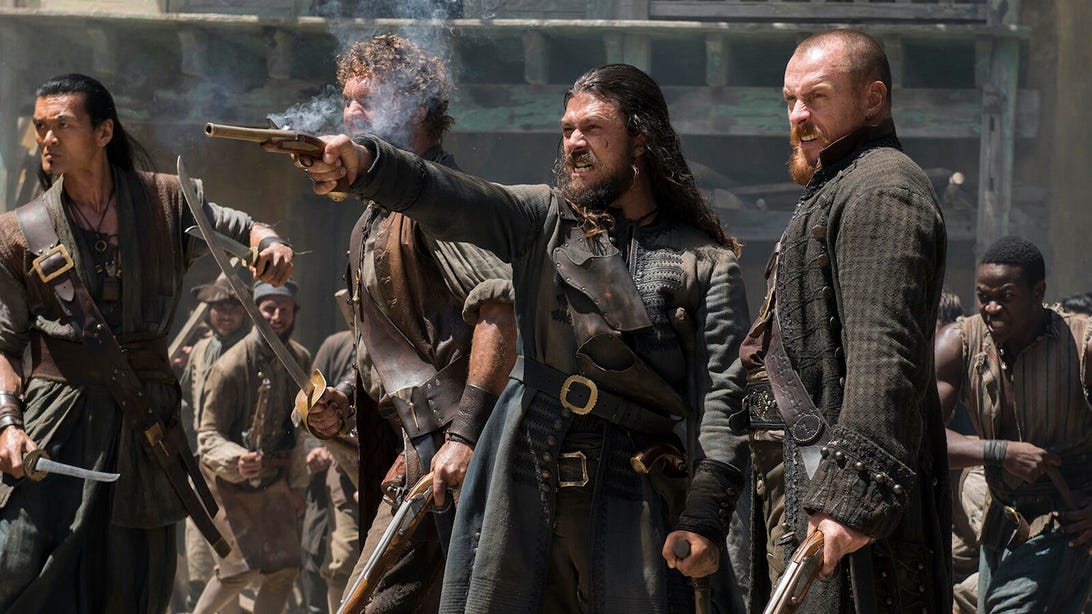
Black Sails
StarzIn Shōgun's early episodes, John Blackthorne (Cosmo Jarvis) is constantly addressing questions of his legitimacy. Everyone thinks he's a pirate, and he insists that he isn't — but given the fact that he was pillaging every Portuguese outpost he encountered on his way to Japan, we kinda beg to differ. Whatever the nature of his seafaring exploits, we don't really get to see Captain Blackthorne in action. For anyone searching for a show to scratch that particular itch, there's always Black Sails.
The Starz series is the definitive pirate show, and though it's been years since it was on the air, it still holds up as one of the best written (and least discussed) shows of the 21st century. You can think of it as a prequel, of sorts, to Treasure Island — or you could view it as a quasi-true account of piracy in the West Indies. Either way you slice it, it doesn't get much better than this. Toby Stephens is Captain James Flint, a surly antihero hunting for treasure and fighting to keep his crew in line. Real-life legends like Blackbeard (the late, great Ray Stevenson) and Long John Silver (a rakish Luke Arnold) also appear, and they're just a few of the figures that make Black Sails a brutal, sexy historical remix.
Boundless
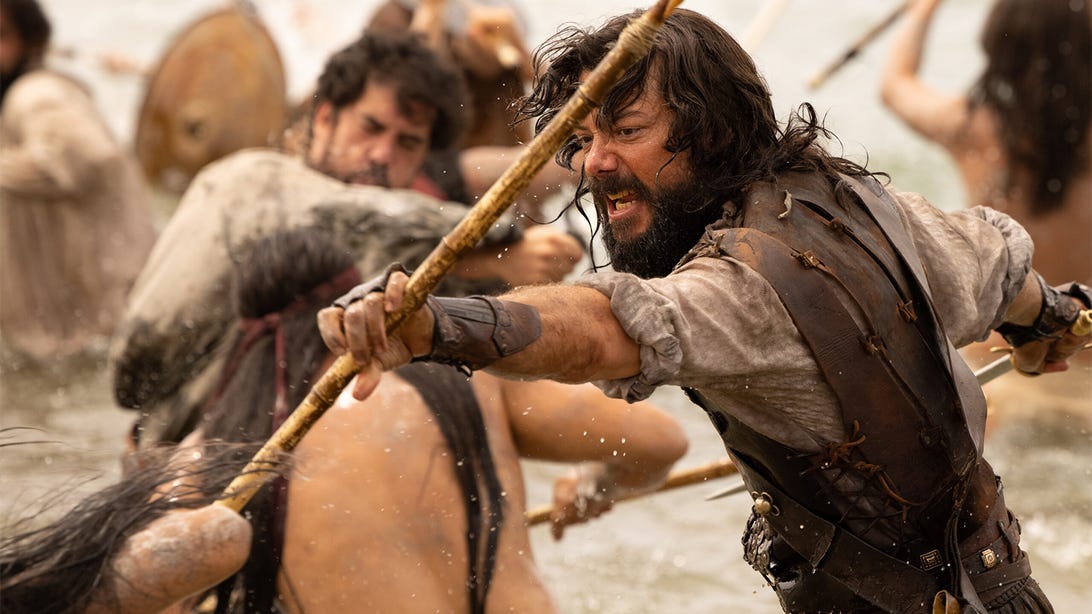
Alvaro Morte, Boundless
Prime VideoBlackthorne likely would have never wound up in Japan if not for the Strait of Magellan, a crucial passage that connects the Atlantic Ocean to the Pacific. Shōgun makes a big deal about its exclusivity: The Spanish and the Portuguese (one of the series' overarching villains) have been gatekeeping ever since they discovered it, as it allows them to maintain a monopoly over the spice trade. Boundless (or Sin Límites) traces the origins of that discovery, and it makes the crucial choice to cast two of Spain and Latin America's hottest actors in the lead roles.
Rodrigo Santoro (of Westworld, Lost, and Love Actually fame) is Ferdinand Magellan, the Portuguese explorer after whom the famous passage is named. He's joined by Juan Sebastián Elcano (Money Heist's Alvaro Morte), a Spanish sailor, in his quest to circumnavigate the world. While the duo would make history in discovering Magellan's Pass — and essentially opening to floodgates for colonialism in South America — their adventure was a perilous one. Boundless doesn't skimp on realism, violence, or potential mutiny. It's also a limited series, so you don't have to stress about a cliffhanger ending.
Pachinko
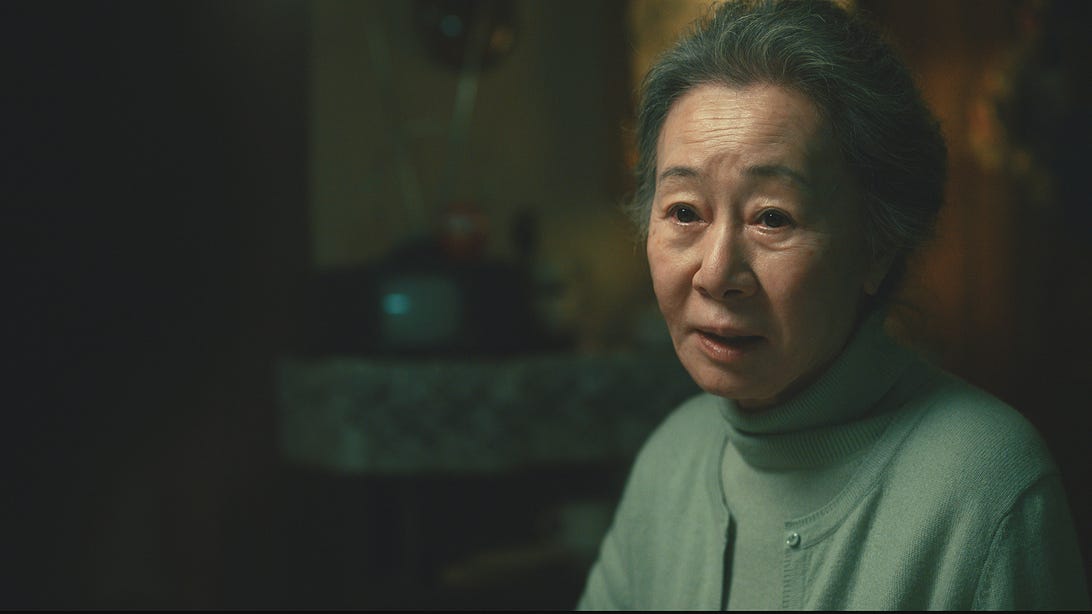
Yuh-Jung Youn, Pachinko
Apple TV+Japan's history is a complicated one. At one point, as depicted in Shōgun, they played the role of the colonized. But the series doesn't entirely shy away from the country's role as the colonizer, either, especially where neighboring nations like Korea were concerned. Still, it's important to get another perspective, as so many characters in Shōgun talk about conquering Korea with a reckless sort of longing.
Pachinko explores this aspect of Japan's history in greater detail. The Apple TV+ series charts the life of a family who emigrated from Japan-occupied Korea to Osaka in the 1900s, and takes its time unpacking the fierce oppression and blurred cultural lines of the colonial era. We experience this oppression chiefly through Pachinko's lead heroine, Sunja (played at different points by Yuna, Minha Kim, and Minari's Yuh-Jung Youn), and several generations of her family. It's not always an easy watch, but Pachinko remains surprisingly tender in its execution. As an under-explored chapter of history, it's absolutely essential, not to mention thorough — and its attention to detail, particularly in fleshing out the inner lives of myriad characters, makes the series a true feat. (Bonus points for featuring a pre-Shōgun Anna Sawai!)
Becoming Elizabeth
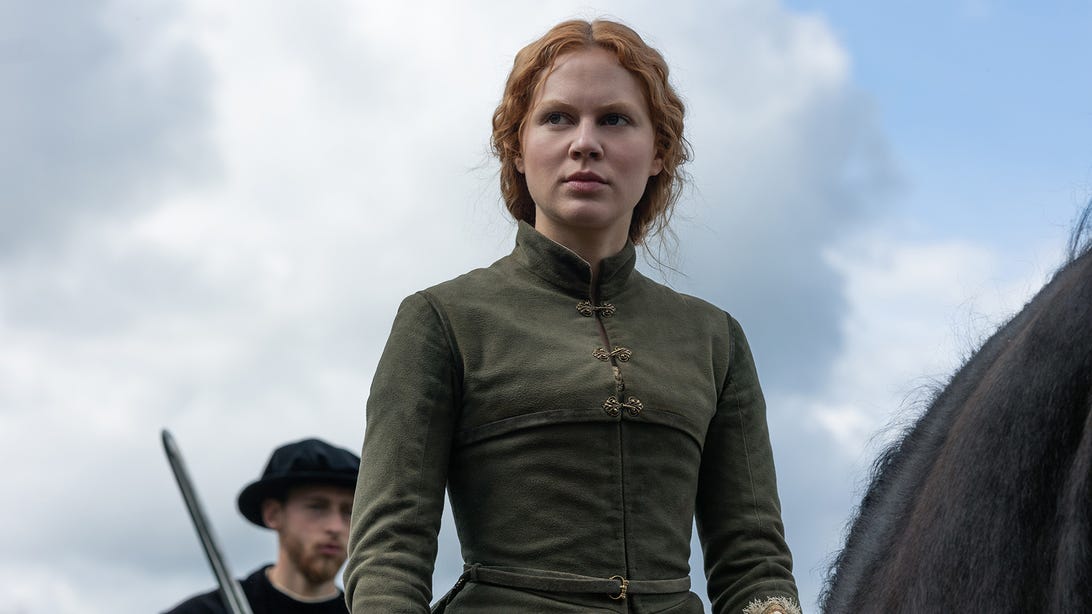
Alicia von Rittberg, Becoming Elizabeth
StarzWhen John Blackthorne name-drops the Queen of England in Shōgun's second episode, it's hard not to stifle a chuckle — especially if you know your history. Sure, Elizabeth I was wise and thoughtful, as Blackthorne asserts, but she was a lot of other things too… and not all of them good! But she was also a product of her time. The Tudor era was a notoriously vicious one to live through: You couldn't survive back then, much less amass power, without being shrewd. Shōgun only scratches the surface of the drama unfolding on the other side of the world, but that's because there are plenty of shows that already explore Queen Elizabeth's court in greater detail.
Becoming Elizabeth is the latest series to tackle the shifting allegiances and monastic hysteria of 16th century England, and it might just be one of the best. The eight-part series is all about Elizabeth's (Alicia von Rittberg) life pre-ascension, when her father, Henry VIII, finally croaks and leaves the monarchy without a definitive heir. As Liz is the daughter of "the whore" Anne Boleyn — and also, inconveniently, a woman — neither she nor her sister, Mary (Romola Garai) — Queen of Scots; inconveniently Catholic — is actually eligible for the throne. That doesn't stop them from becoming pawns in an endless game of thrones, for lack of a better term. Fans of Thrones — and of Shōgun's own twisty political subplots — will find a lot to like in this particular drama.